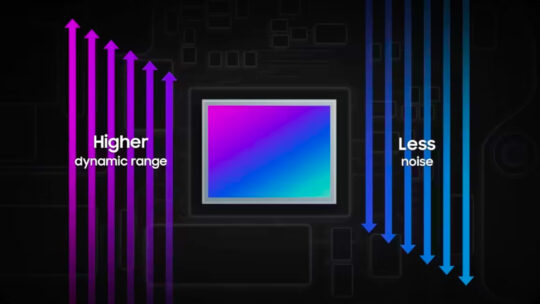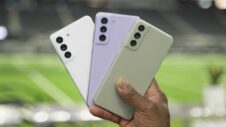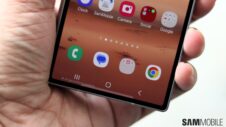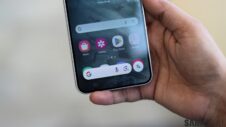A couple of days ago, Samsung unveiled its new 50MP ISOCELL camera sensor. It brings improved autofocus performance and better HDR support compared to previous sensors in the lineup. It is called the ISOCELL GNK, and it is the successor to the ISOCELL GN1 that was launched three years ago. It is now being reported that it has already been used in Google's latest flagship smartphone.
Pixel 8 Pro uses Samsung's ISOCELL GNK camera sensor
According to a report from Maeil Business Newspaper, Samsung's ISOCELL GNK camera sensor is used in the recently launched Google Pixel 8 Pro. Earlier, the Pixel 8 Pro was rumored to use the ISOCELL GN2 camera sensor for its primary camera. However, it has now been revealed that it is using a newer sensor which has improved video recording and better HDR performance. It is a 1/1.3-inch sensor with 1.2µm pixels, Dual Pixel Pro autofocus, 8K 30fps video recording, 4K 120fps video recording, Staggered HDR, Smart ISO Pro, and the ability to capture up to 14-bit RAW image files. It can also capture full-resolution 50MP frames at 24fps and 12.5MP pixel-binned frames at 90fps.
This camera sensor will reportedly also be used in more smartphones that will be launched globally next year. Apple, Google, OnePlus, and Samsung are the only brands that launch their phones globally (including Canada and the US). Since the Galaxy S24 and the Galaxy S24+ will reportedly use the ISOCELL GN3 50MP camera sensor, and Apple only uses Sony's sensors, the Pixel 9 sensor might be the one that is scheduled to use the ISOCELL GNK next year.
This story continues after our ISOCELL HP2 200MP camera sensor video below.
Apparently, Samsung has come up with a strategy to compete with Sony in the camera sensor segment by launching technologically superior products in both high-end and regular sensor lineups. It has been more than two years since the launch of its previous 50MP large-sized GN-series camera sensors. The South Korean firm aims to be the world's number one semiconductor chip firm by 2030, and if it wants to achieve this goal, it needs to defeat Sony in the camera sensor market.






